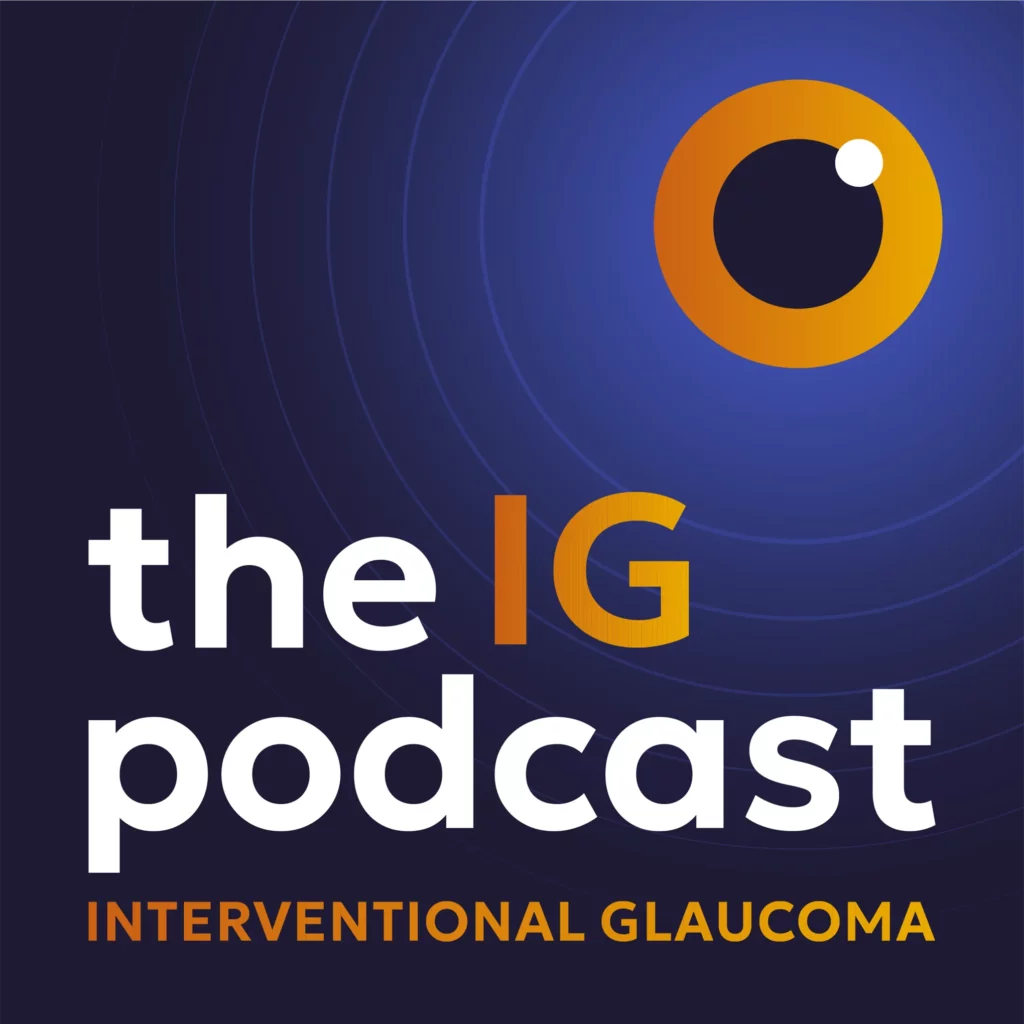In this episode of the Interventional Glaucoma podcast, Prof. Verena Prokosch and Ms. Nishani Amerasinghe discuss the integration of minimally invasive glaucoma surgery (MIGS) into routine cataract surgery. They focus on how laser-based trabecular procedures can be efficiently combined with phacoemulsification to improve outcomes for glaucoma patients.
The Interventional Glaucoma Podcast
Episode 16: Integrating Glaucoma Surgery into Your Phaco Routine
- 17 July 2025
Key Takeaways
- Why integrate MIGS during cataract surgery?
Traditional reliance on eye drops is challenged by poor adherence and significant ocular surface side effects. MIGS offers a safe, effective, and quick surgical alternative that can reduce or eliminate drop use. - Patient selection is critical: Ideal candidates are those with mild to moderate open-angle glaucoma who are already undergoing cataract surgery. Setting realistic expectations with patients—whether reducing IOP or medication burden—is essential for success.
- Practical tips for implementation: Surgical gonioscopy is key. Surgeons should be trained in angle visualization and patient positioning. Cases should start with patients who have wide, open angles.
- Workflow and training considerations: The ELIOS procedure adds only 2–3 minutes to phaco and has a short learning curve. The main hurdle is nurse training for proper device handling and sterility, which is easily overcome with support.
- Clinical and patient benefits: Combining MIGS with cataract surgery can significantly improve quality of life, ocular surface health, and visual function—often described by patients as life-changing.
Guests

Prof. Verena Prokosch
Dr. Prokosch studied human medicine at the Westphalian Wilhelms University in Munster. Before she successfully completed her doctorate at the Institute for Experimental Ophthalmology in 2007, she took the opportunity to study in Spain, Norway, and Switzerland. Dr. Prokosch received her teaching qualification for ophthalmology from the University of Munster in 2013, where she worked as a senior physician at the eye clinic. In 2014 she moved to the Eye Clinic of the University Medicine of the Johannes Gutenberg University in Mainz. There, the private lecturer is the senior physician for clinical glaucoma and heads a working group that examines molecular markers in experimental glaucoma. Her research on this topic has been funded by the German Research Foundation since 2014.

Ms. Nishani Amerasinghe
Ms. Amerasinghe is a full-time Consultant Ophthalmic Surgeon based at the University Hospital Southampton NHS Foundation Trust, specializing in Glaucoma and Cataract Surgery. She is one of the leading experts in Glaucoma in the UK employing the latest medical and surgical techniques including lasers (SLT), conventional glaucoma surgery (tube and trabeculectomy) and minimally invasive glaucoma surgery (MIGS). She is an expert complex cataract surgeon using the latest innovative techniques. She is past president of UKEGS.
Additional Resources
Follow Prof Verena Prokosch on Social:
Professor Verena Prokosch | LinkedIn
Follow Ms Nishani Amerasinghe on Social:
Ms Nishani Amerasinghe | LinkedIn
Episode 20: Simple Tips to Improve Angle Visualisation
In this first 2026 episode, hosted by Prof. Dan Lindfield, Ms. Nishani Amerasinghe and Dr. Carolina Medina Martin discuss practical ways to improve angle visualisation during glaucoma assessment and MIGS
Episode 19: ELIOS – What does the data tell us?
In this episode of the Interventional Glaucoma Podcast, our experts Prof. Gus Gazzard, Prof. Cédric Schweitzer and Dr. Marc Töteberg-Harms discuss the evidence, safety, and long-term data behind interventional glaucoma
Episode 18: Health Economics in Interventional Glaucoma
In this episode, Prof. Gus Gazzard talks with Dr. Marc Töteberg-Harms and Dr. Timothy Hamann about the cost-effectiveness and ethical importance of MIGS in interventional glaucoma.
